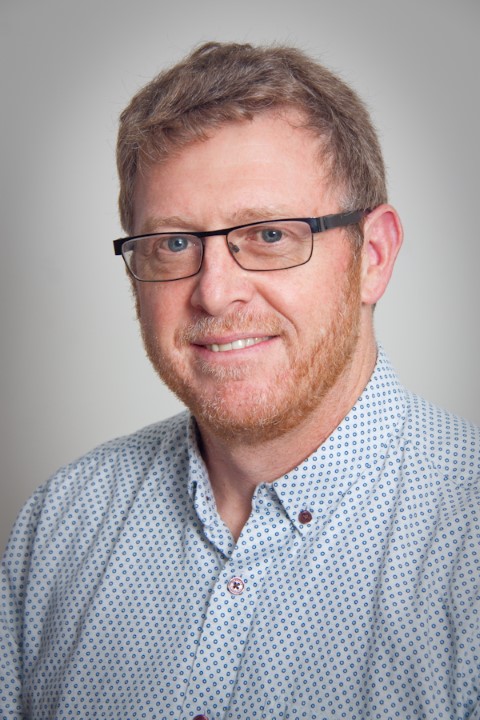Can we be world class?
For more than three decades, Ian Walsh, Managing Director of Intent Group, has been driving improvements in organisations around the globe. Ian understands deeply what is required to deliver and sustain improvement.
Here he shares his thoughts on what New Zealanders can do to recover from the impacts of the Covid-19 pandemic.
I began my career in Australia, running production plants for household products. We had a good team of people, all doing their best. But every day, for varying reasons, the lines and processes would break down.

Stan, the fitter, would diagnose the problem, disappear for a while, then return with the tools and equipment to fix the issue. Meanwhile, we stood around, waiting, or headed outside for longer stoppages until the next event. This was normal, and for many companies, it still is.
Years later, I co-lead a technology transfer project to Japan. Living and working there was one of the most profound experiences of my life.
Over 40 years since WWII, the Japanese post-war recovery was complete, nothing short of miraculous, with their GDP second in the world. They were making everything from cars to electronics.
This factory, near Akashi, made paper products and on my first hands-on day, the line ran with no downtime and over 99% efficiency. It just ran and ran, humming with a sense of urgency as product kept coming off the end.
We hastened around the machines, checking gauges and materials, quality testing product.
Operators adjusted the equipment based on this data and charts. Everyone seemed to know what they needed to do, when and how to do it, and to communicate important information as needed. After four weeks, the line had averaged over 98% and the entire factory was operating over 97% across 13 lines!
This was a revelation to me. At the beginning and end of every shift we reviewed performance and identified opportunities, ensuring a proper shift handover and then went into problem solving.
I recall working on one problem that caused only ten seconds of downtime! It felt like I had landed on another planet. How had they managed to achieve this performance?
Popular belief suggested it was due to the Japanese culture of following instruction without question, but in Japan I was respected, rewarded, engaged and appreciated. I would never let my team down; we were on a mission to get the best possible use out of resources to delight consumers, relentlessly solving problems and sharing knowledge to eliminate and reduce all waste.
I have since worked throughout Asia, Europe, the Americas and of course NZ. Only three organisations of the 1,000+ I have experienced are truly outstanding. Perhaps fifty were very good, the majority were mediocre or disappointing.
Those three were created by leaders who were committed to a vision, surrounded by allies with a common purpose who relentlessly pursued it, removing roadblocks and inspiring and instilling this new future into their workforce. As behaviours changed, so too did attitudes and ultimately, it became a sustaining culture.
When I returned to New Zealand little had changed. Our quality of life had reduced. We were working harder, longer, but not smarter. Our OECD rankings for productivity were in free-fall, from 5th in the 1960’s, to 22nd last year.
Meanwhile politicians and bureaucrats have pontificated over what to do, with innovation initiatives, thinktanks, commissions and taskforces. None have changed the trajectory.
New Zealand was built on our need to innovate, number 8 wire thinking, and ‘she’ll be right’. We excuse our poor OECD performance, stating our businesses are privately owned and too small to compete, and give in to the allure of the bach, boat and BMW. Of course, this is rubbish.
Through my work and presentations, I meet hard-working, committed, intelligent and inventive business owners. Yet we are still going backwards and even our larger organisations show little progress in creating a world class culture.
If we can all come together with strong leadership and commitment to beat a pandemic, why can’t we map a blueprint to be a world class country? Imagine a higher standard of living, carbon neutral, free health and dental, and education for all.
Where equal opportunity is not a political idea but a reality, as we sustainably maximise our resources and potential for the betterment of all.
Surely now is the time to protect and grow ‘Brand NZ’ by being the best in all we do. True north to the new normal is through a well-communicated and compelling long-term vision, with committed leadership.
We need Government to lead by example, create the operating framework for industry, holding them to account by setting hard and measurable targets with defined plans to achieve them and providing access to knowledge capital and support as needed. The goal is to be world class.
Government needs to be transparent and accountable for improvement and to support NZ business.
We are a long way behind the starting grid. Many companies, including Toyota, have been on this journey for over 50 years.
The evidence of their success in applying a relentless approach to drive a performance culture and outperform all their competitors is overwhelming in every sector. It works.
How much longer will we wait? Until all our companies are foreign owned and profits are repatriated or until all our resources are shipped offshore for other nations to add value and reap reward?
Until we are just a tourist destination beholden to the world, and at risk of the next pandemic?
This pandemic has taught us the value of great leadership, direction and the power of a team response. Look at what New Zealanders have achieved. The answer to how we recover the economy is staring us in the face.
Yes, we need some short-term initiatives to stabilise the country, but the longer-term actions need visionaries, not only so we can return to where we were, but create a new aspirational future for all New Zealanders. I am keen, are you?!



